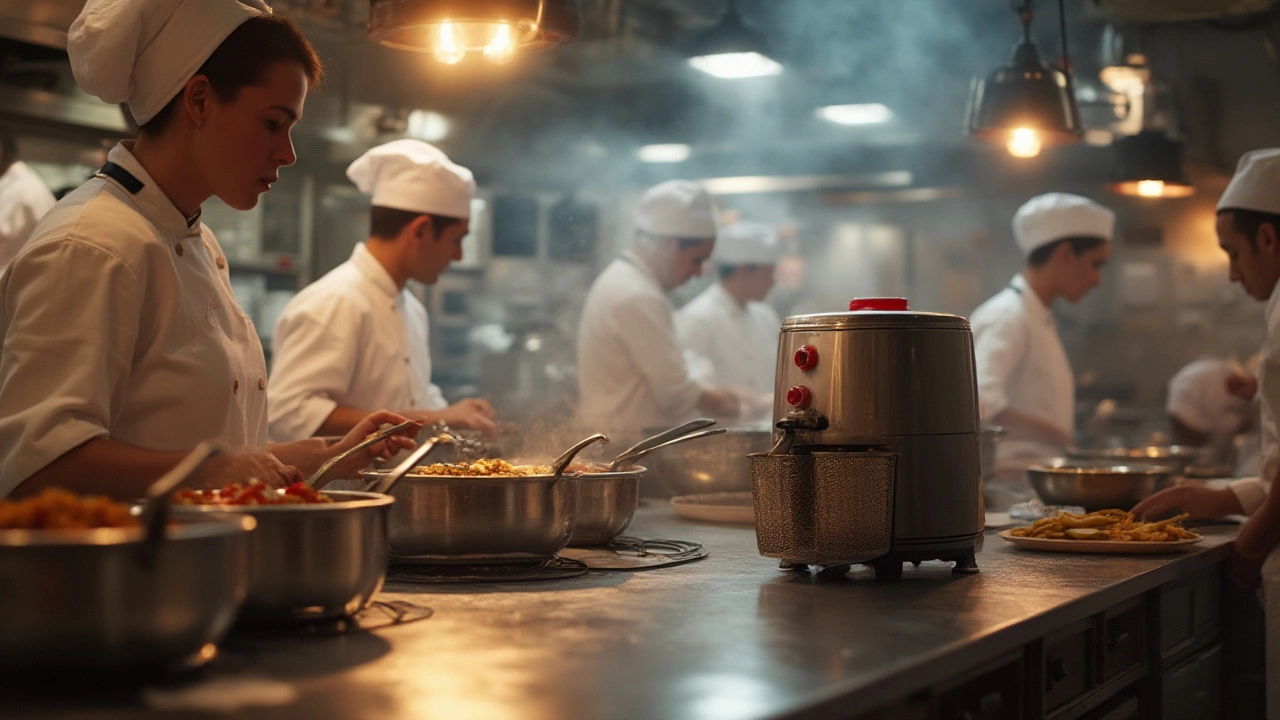Thinking about swapping your greasy deep‑fat fryer for a sleek air fryer? You’re not alone. Most people want crispy food without the guilt, but they also don’t want to sacrifice taste or spend a fortune. This guide cuts through the hype and gives you the real‑world pros and cons of each kitchen gadget.
Deep fryers submerge food in hot oil, which means a lot of calories sneak in. A few minutes in a drum of oil can add 200‑300 calories to a serving of chicken. Air fryers, on the other hand, use hot air circulated at high speed, letting you cook with a splash of oil or none at all. The result is usually 70‑80% fewer calories while keeping that golden crunch. If you’re watching your waistline or just want a lighter version of your favourite fried foods, the air fryer takes the lead.
That said, deep fryers excel when you need a super‑crisp exterior that stays juicy inside—think fish and chips or doughnuts. The oil creates a barrier that locks in moisture. Air‑fried versions can mimic the texture, but they sometimes fall a little short on that authentic “oil‑kissed” bite. If you’re okay with a tiny trade‑off for fewer calories, the air fryer wins. If you need the full‑fledged fry experience, stick with the deep fryer.
Buying a deep fryer usually costs less upfront—many models sit under £50. Air fryers tend to be pricier, often ranging from £80 to £200 for larger units with extra features. However, consider long‑term costs. Deep fryers require regular oil changes, and a single litre of good‑quality oil can run you £5‑£10 each time you refill. Over a year, that adds up. Air fryers only need a light spray of oil, which is a fraction of the expense.
When it comes to clean‑up, the air fryer is a breeze. Most baskets are dishwasher‑safe, and there’s no greasy oil to dispose of. Deep fryers leave a sticky mess that can take extra scrubbing and safe disposal of used oil. If you value quick turnaround and minimal maintenance, the air fryer is a clear win.
Space matters too. A typical deep fryer takes up a decent chunk of countertop real estate, while a compact air fryer can fit in a cabinet or even a dorm room. If you have a tiny kitchen, the smaller footprint of an air fryer might be the deciding factor.
Bottom line: Choose an air fryer if you want healthier meals, lower running costs, and easy cleaning. Reach for a deep fryer when you need that unmistakable, ultra‑crisp finish and don’t mind the extra oil and upkeep. Either way, both gadgets can upgrade your cooking game—just pick the one that matches your priorities.

Ever wondered why air fryers aren't found in restaurant kitchens? Discover the real reasons as we pull back the curtain and compare air fryers to commercial kitchen needs.